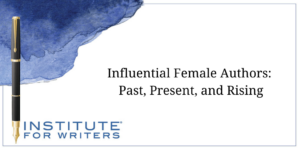
Influential Female Authors: Past, Present, and Rising
We’re going to look at influential female authors of the past, those impacting the present, and whom the industry expects to make a big splash.
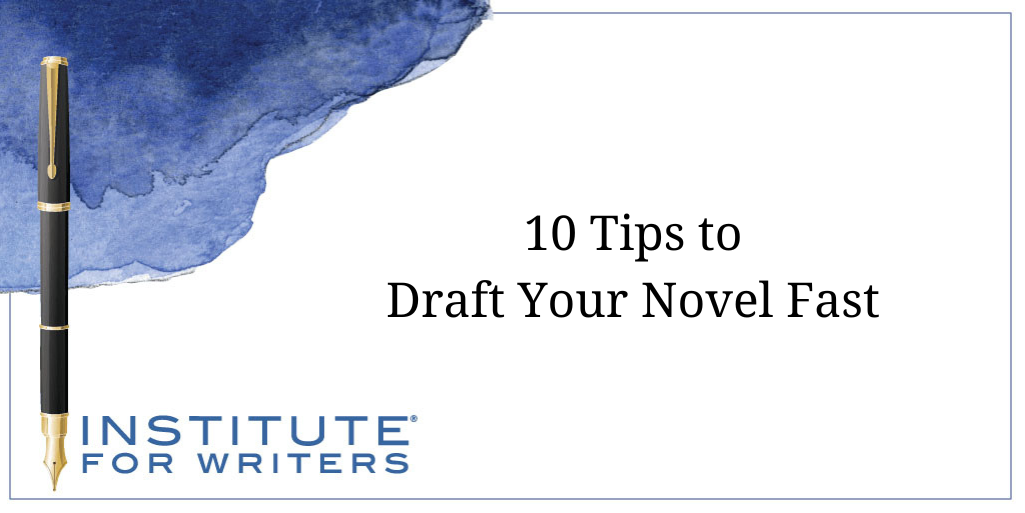
We teach our students how to write and get published!
View our Course Catalog >
When we think about novel writing and the time required for it, most of us think: “I don’t have enough time for this!” With the right strategy, you can finish writing the first draft of your novel fast. That’s what NaNoWriMo (National Novel Writing Month) is all about, but you can use these 10 tips year-round to draft your book fast with less stress.
When you’re not under a time crunch, you can be a pantser and write wherever the narrative takes you. If you want to finish your novel in 30 days, you must write 1,667 words every day. When writing in this condensed time frame, it helps to have an idea of your beginning, middle, and end. This will help you quickly get into the flow of writing.
When you’re writing a novel, it’s easy to get stuck on a certain scene or chapter. If you don’t know what the end goal is for the character, it makes it difficult to get to the next step of the story.
It doesn’t have to be a formal one, like the ones we’re taught in school with roman numerals and letters. Although your outline can be as detailed as you want or need it to be, you want to at least have the basic plot points or turning points of the novel. This will help you structure your book better and save time.
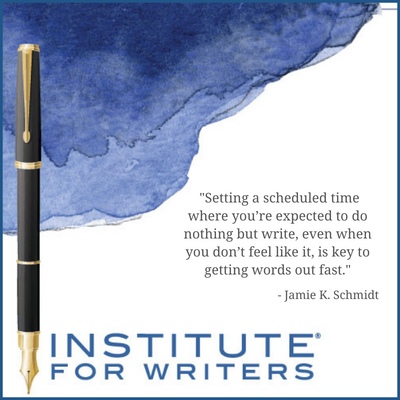
Having an outline will give you a to-do list for each chapter so you always know what’s coming up next.
Setting a scheduled time where you’re expected to do nothing but write, even when you don’t feel like it, is key to getting words out fast. Make a writing session an obligation, and it will soon become a habit. Having a routine makes the words flow better. Some authors make sure they have a specific beverage next to them. Others light a candle and play mood music. Having these routines trains your brain that it’s time to write.
The last thing you want to be is distracted while you’re in the writing zone. However, some authors write in busy coffee shops because they like the energy. Others go to the library or an office space, to take advantage of a writing area that isn’t home. It’s also possible to carve out a space in your home to write. Don’t have a home office or spare room to write in? Repurpose a closet. Close the door to your bedroom and put up a “Do Not Disturb” sign. Write when no one is home, after everyone has gone to bed, or before they all wake up. Write in the car or the garage if weather permits.
If you’re doing NaNoWriMo, writing is for November and editing is for December and January. This goes for any time you’re working to draft your novel fast. You’re not trying to write a masterpiece with every sentence. You just want to finish the novel as quickly as possible.
International bestseller Nora Roberts says, “You can’t edit a blank page.” When you write your NaNoWriMo novel, it’s important to remember that this is a first draft. You have to tell the story to yourself first before you can polish it so everyone else can enjoy it.
To reach 50,000-words in one month, you have to write 1,667 words per day. But what if you can’t do that? Don’t panic. Cut that in half and if it takes you two months to finish, that’s still more words than you would have written normally, right? While the goal is to win NaNoWriMo, the real goal is to finish your novel.
Ideally, that hour will be spent writing. But some days are busier than others. Don’t discount taking the time to think about your characters and process what comes next. You can do that driving in traffic, waiting in line, or cooking dinner. If you’re going to be away from your computer, you can take a notebook and jot down notes in your downtime. If you’re going to be driving a long distance, consider dictating your novel into a recorder or an app on your phone.
There are a bunch of productivity apps to help you stay focused while writing. Here are a few of my favorites:
If you want to write faster, you must silence your inner editor. When you self-edit while writing, it slows you down more than you realize. This is a difficult phase for most authors since we are so critical of ourselves. Give yourself permission to write garbage for the month of November. You can fix it later once you reach 50,000 words.
Just start writing whatever comes into your head. Have your characters save a puppy. Have them get into an argument. Have them do something that shows what type of person they are. If worse comes to worst, just start writing whatever comes to mind. Describe the house, a flower, or their car. Logic isn’t as important as you think it is. The key is to just start writing and eventually you get back on track. You can always delete what you wrote – after you finish the first draft!
USA Today bestselling author, Jamie K. Schmidt, writes erotic contemporary love stories and paranormal romances. Her steamy, romantic comedy, Life’s a Beach, reached #65 on USA Today, #2 on Barnes & Noble and #9 on Amazon and iBooks. Her Club Inferno series from Random House’s Loveswept line has hit both the Amazon and Barnes & Noble top one hundred lists. The first book in the series, Heat, put her on the USA Today bestseller list for the first time, and is a #1 Amazon bestseller. Her book Stud is a 2018 Romance Writers of America Rita® Finalist in Erotica. Her dragon paranormal romance series has been called “fun and quirky” and “endearing.” Partnered with New York Times bestselling author and actress, Jenna Jameson, Jamie’s hardcover debut, SPICE, continues Jenna’s FATE trilogy.

We’re going to look at influential female authors of the past, those impacting the present, and whom the industry expects to make a big splash.
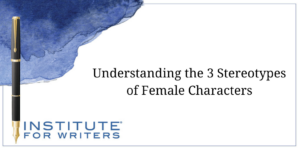
This week, we’re focusing on how we as writers can create strong female characters that others will look up to, instead of harmful stereotypes.
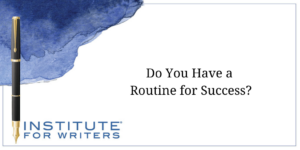
Is your writing routine reaching its potential? Maybe it’s time to take another look so you can see what’s possible for your writing.
1000 N. West Street #1200, Wilmington, DE 19801
© 2024 Direct Learning Systems, Inc. All rights reserved.

1000 N. West Street #1200, Wilmington, DE 19801
© 2025 Direct Learning Systems, Inc. All rights reserved.

1000 N. West Street #1200, Wilmington, DE 19801
©2025 Direct Learning Systems, Inc. All rights reserved. Privacy Policy.